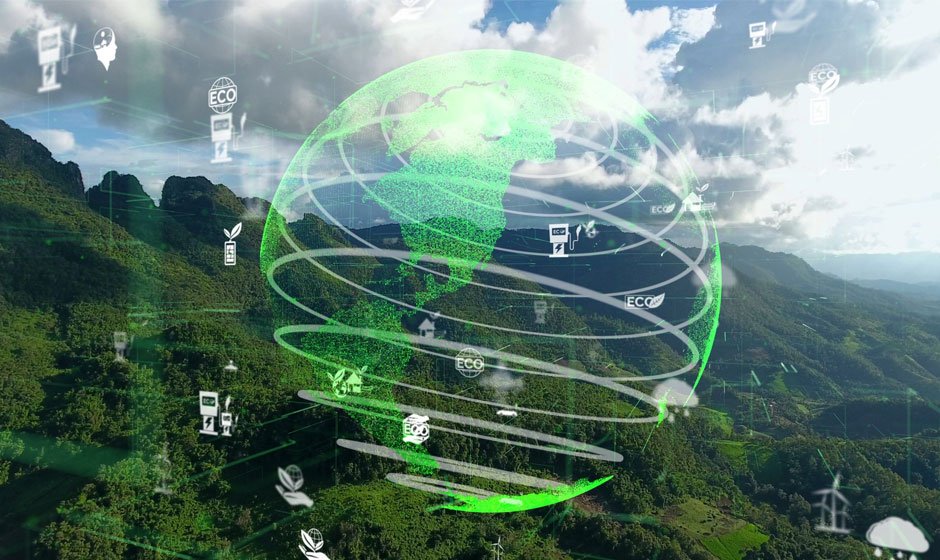In an era where environmental consciousness is not just a choice but a necessity, the ‘wiser’ approach to sustainable living is gaining ground. Combining smart technology and sustainable practices leads to an eco-smart revolution. With companies like Schneider Electric at the forefront, integrating intelligent systems into our daily lives is not just an aspiration but a rapidly unfolding reality.
The Drive Towards Smart and Sustainable Living
The quest for a sustainable future has led to the development of smart technologies designed to minimize environmental impact while maximizing efficiency. Technology enables an eco-friendlier way of life, from smart homes that optimize energy use to intelligent transportation systems reducing emissions. This shift is driven by the dual need to protect our planet and to make our living spaces more responsive and efficient.
Smart Homes: The Heart of the Eco-Smart Movement
Smart homes stand at the center of the eco-smart revolution. Utilizing IoT devices and AI, these homes can automate heating, lighting, and energy consumption, significantly reducing waste. Companies like Schneider Electric lead the charge, offering solutions like their Wiser home management system. These systems make energy use more efficient and provide homeowners with actionable insights into their consumption patterns.
Renewable Energy Integration
A key component of intelligent living is the integration of renewable energy sources. Smart technology plays a pivotal role in this, ensuring that the energy generated from solar and wind is efficiently used and stored. The integration of fuel services is essential for reducing reliance on fossil fuels and moving towards a more sustainable energy model.
Smart Cities: Reshaping Urban Environments
Beyond individual homes, the eco-smart revolution is reshaping entire urban environments. Smart city initiatives worldwide integrate technology to manage everything from traffic flows to waste management, water distribution, and air quality monitoring. These initiatives not only improve residents’ quality of life but also reduce cities’ environmental footprint.
Sustainable Mobility Solutions
Sustainable mobility solutions are gaining traction as the world seeks to reduce carbon emissions. Electric vehicles (EVs), enhanced by smart charging networks and integrated traffic management systems, are a key part of this. Smart technology ensures that these vehicles are charged efficiently and optimally, reducing strain on the electrical grid and promoting the use of renewable energy.
Challenges and Future Perspectives
While the potential of smart technology in fostering sustainable living is immense, challenges remain. Issues such as data security, the digital divide, and ensuring the technology is accessible to all are critical to address. However, with continuous advancements and a growing focus on inclusive technology, these challenges are being discussed actively.
The Role of Schneider Electric in the Eco-Smart Revolution
Schneider Electric, a global leader in the digital transformation of energy management and automation, is pivotal in promoting smarter, more sustainable living. Their cutting-edge solutions are key in revolutionizing homes, cities, and industries. By integrating advanced energy management systems, Schneider Electric enables significant reductions in energy consumption and carbon emissions, contributing to environmental sustainability. Their automation technologies enhance the operational efficiency of various sectors, optimizing processes, reducing waste, and increasing productivity. This commitment to innovation positions Schneider Electric at the forefront of the eco-smart revolution, making it a key driver in the journey towards a more sustainable and efficient future.
Emphasizing Consumer Awareness and Engagement
A crucial aspect of the eco-smart revolution is the growing consumer awareness and engagement in sustainable practices. Smart technology provides the tools for an eco-friendlier lifestyle and educates and engages consumers in their energy usage and environmental impact. This is evident in the rise of user-friendly apps and platforms that allow individuals to monitor their carbon footprint, participate in energy-saving challenges, and even trade renewable energy. Such initiatives foster a sense of community and collective responsibility, which is crucial for driving widespread change. By empowering consumers with knowledge and control over their environmental impact, the eco-smart revolution is nurturing a more conscious and proactive society.
Overall Conclusion
The eco-smart revolution is more than just a technological shift; it’s a comprehensive movement towards a sustainable and informed way of living. With smart technologies leading the way, companies like Schneider Electric providing innovative solutions, and heightened consumer awareness and participation, we are witnessing a transformative era. This revolution sets the stage for a future where sustainability and intelligent living are intertwined, promising a healthier planet and a more mindful society.

